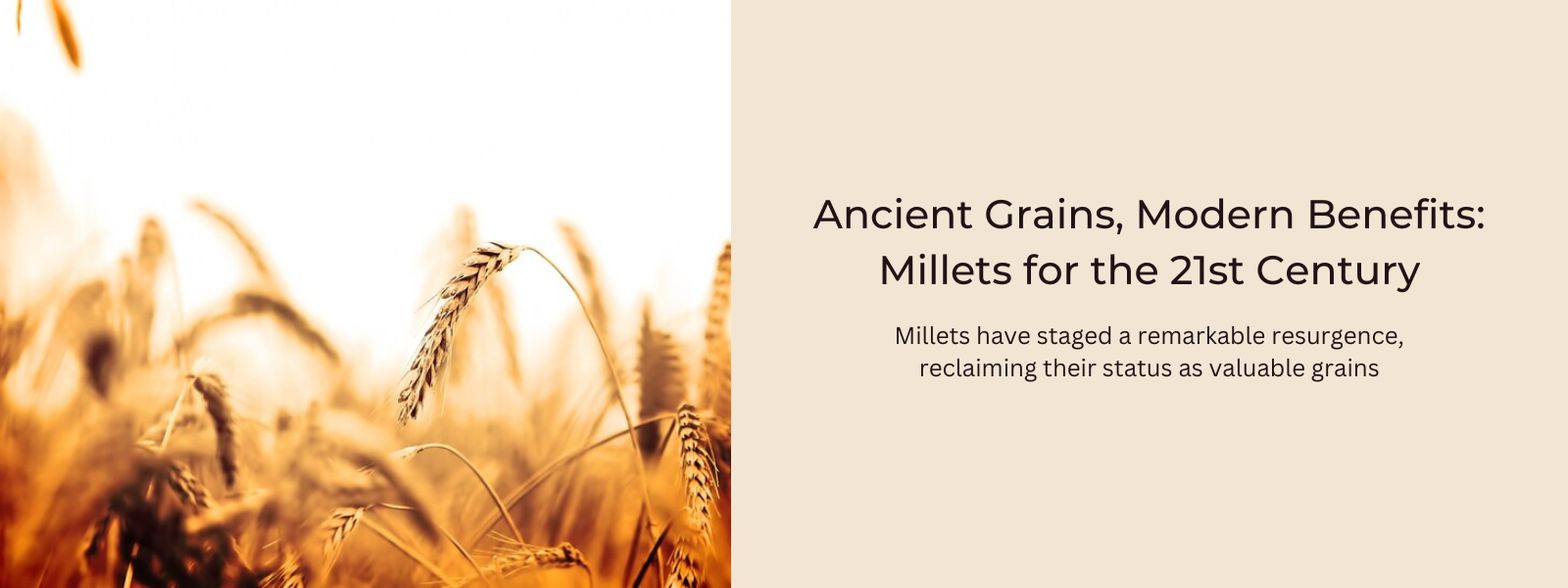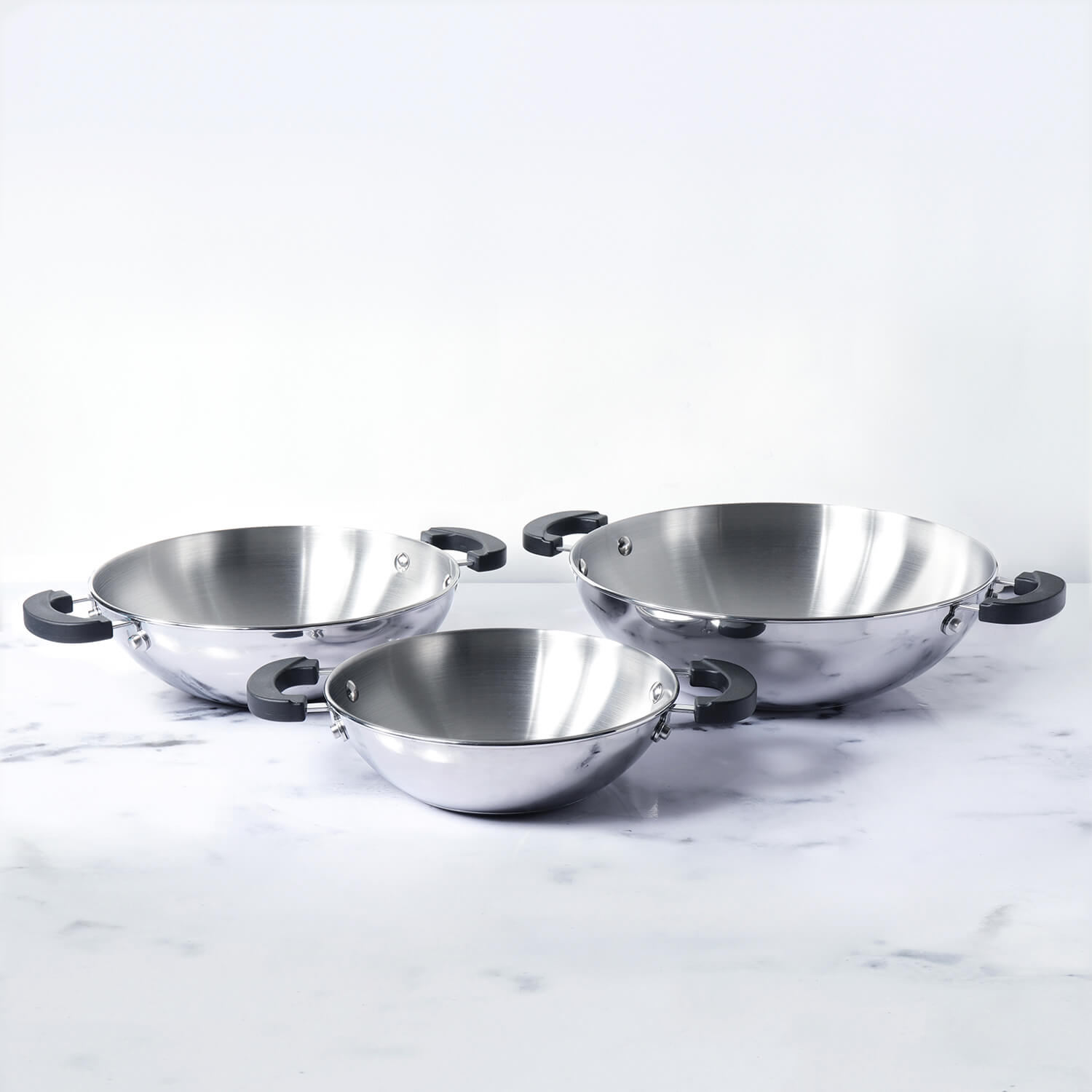Millets are nutrient-dense grains packed with vitamins, minerals, fiber, and antioxidants, making them a powerful addition to any diet. Their high fiber content supports digestive health and helps regulate blood sugar levels, making them beneficial for managing diabetes. Millets also promote heart health by lowering cholesterol and blood pressure, thanks to their rich magnesium, potassium, and fiber content. Additionally, the antioxidants in millets protect against chronic diseases such as heart disease and cancer by reducing oxidative stress and inflammation. Their low glycemic index aids in weight management, while the high calcium content, especially in finger millet, supports bone health. Overall, millets offer a wide array of health benefits, from nutritional value to disease prevention.
Table of Contents
Nutritional Powerhouse
Millets are a group of small-seeded grasses that are highly nutritious and have been a staple in various cultures for thousands of years. They are packed with essential nutrients, including vitamins, minerals, fiber, and antioxidants. These grains are particularly rich in B-vitamins such as niacin, thiamine, and riboflavin, which play crucial roles in energy metabolism and maintaining healthy skin, hair, and eyes. Additionally, millets are a good source of essential minerals like iron, magnesium, phosphorus, and potassium. These minerals are vital for bone health, muscle function, and maintaining healthy blood pressure levels.
Digestive Health
One of the standout benefits of millets is their high fiber content. Dietary fiber is essential for maintaining a healthy digestive system. It helps regulate bowel movements, prevent constipation, and promote a healthy gut microbiome. The fiber in millets also acts as a prebiotic, feeding the beneficial bacteria in the gut and enhancing overall gut health. Improved digestion can lead to better nutrient absorption and a lower risk of gastrointestinal disorders such as irritable bowel syndrome (IBS) and diverticulitis.
Blood Sugar Management
Millets have a low glycemic index (GI), which means they release glucose into the bloodstream slowly, preventing rapid spikes in blood sugar levels. This makes them an excellent choice for individuals with diabetes or those at risk of developing the condition. Consuming millets can help regulate blood sugar levels and improve insulin sensitivity. The high fiber content also slows down the digestion and absorption of carbohydrates, further aiding in blood sugar control. Regular consumption of millets can contribute to better management of diabetes and reduce the risk of developing type 2 diabetes.
Heart Health
The nutrients found in millets, particularly magnesium, potassium, and fiber, play significant roles in promoting heart health. Magnesium helps relax blood vessels, reducing blood pressure and lowering the risk of heart disease. Potassium is crucial for maintaining healthy blood pressure levels by balancing sodium in the body. The fiber in millets helps reduce cholesterol levels by binding to cholesterol molecules in the digestive tract and preventing their absorption. This can lead to lower levels of LDL (bad) cholesterol and a reduced risk of atherosclerosis and other cardiovascular diseases.
Antioxidant Protection
Millets are rich in antioxidants, including phenolic acids, flavonoids, and tannins. These compounds help neutralize free radicals in the body, reducing oxidative stress and inflammation. Chronic inflammation and oxidative stress are linked to various diseases, including heart disease, cancer, and neurodegenerative disorders. By providing antioxidant protection, millets can help reduce the risk of these conditions and support overall health. The antioxidants in millets also have anti-aging properties, promoting healthy skin and reducing the risk of age-related diseases.
Weight Management
Incorporating millets into your diet can aid in weight management. The high fiber content promotes a feeling of fullness and satiety, reducing overall calorie intake. The complex carbohydrates in millets are digested slowly, providing sustained energy and preventing hunger pangs. This can help reduce snacking and overeating, supporting healthy weight loss or maintenance. Additionally, millets are low in fat and calories compared to other grains, making them a nutritious option for those looking to manage their weight effectively.
Bone Health
Millets, particularly finger millet (ragi), are exceptionally high in calcium, which is essential for maintaining strong bones and teeth. Calcium is crucial for bone development in children and adolescents and for preventing osteoporosis and fractures in older adults. In addition to calcium, millets contain other bone-supporting minerals like phosphorus and magnesium. These minerals work together to maintain bone density and overall skeletal health. Regular consumption of millets can help ensure adequate intake of these essential nutrients and support long-term bone health.
Conclusion
Millets offer a wide range of health benefits, from their rich nutritional profile to their role in disease prevention. Their high fiber, vitamin, and mineral content support digestive health, blood sugar management, heart health, and weight management. The antioxidants in millets provide protection against chronic diseases and promote overall well-being. Incorporating millets into your diet can contribute to better health outcomes and enhance your quality of life. As versatile and nutritious grains, millets are an excellent addition to a balanced and health-conscious diet, offering timeless benefits in a modern context.











Leave a comment